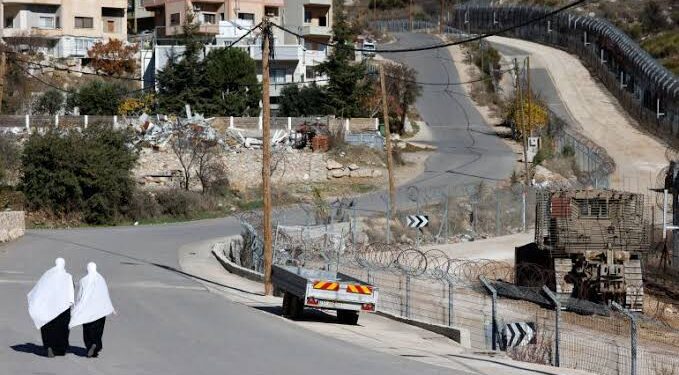The Israeli government has approved a controversial plan to double the settler population in the illegally occupied Golan Heights, days after rebel groups toppled Syrian leader Bashar al-Assad. The announcement comes amid heightened regional tensions, with Israeli Prime Minister Benjamin Netanyahu framing the initiative as a strategic move to “strengthen the State of Israel.”
The new plan targets areas Israel has occupied since the 1967 Six-Day War, excluding Syrian territories seized following Assad’s removal. In 1981, Israel effectively annexed the Golan Heights by imposing Israeli law—a move rejected by international law and the United Nations.
Demographic Expansion Plan
Netanyahu’s office revealed that the government had “unanimously approved” the plan, allocating over 40 million shekels ($11 million) to increase the Israeli settler population. Current estimates indicate 31,000 Israeli settlers live in the Golan Heights, alongside Druze and other minority groups, many of whom identify as Syrian.
“Strengthening the Golan is strengthening the State of Israel, and it is especially important at this time,” Netanyahu said. “We will continue to hold onto it, cause it to blossom, and settle in it.”
Geopolitical Timing
The announcement comes as Israel capitalizes on what it perceives as a strategic window following Bashar al-Assad’s ousting and the establishment of a transitional government in Syria led by opposition groups like Hayat Tahrir al-Sham (HTS). The newly seized Syrian land, which includes Mount Hermon and overlooks Damascus, remains demilitarized under agreements stemming from the 1973 war.
Observers suggest Netanyahu aims to entrench Israeli control over the region before US President-elect Donald Trump assumes office on January 20. Trump, during his first term, became the first world leader to officially recognize Israeli sovereignty over the Golan Heights, setting a precedent that Israel seeks to leverage further.
Regional and International Reactions
The move has drawn sharp criticism. Saudi Arabia condemned the plan, accusing Israeli leaders of sabotaging Syria’s delicate transition. Reporting from Amman, Al Jazeera journalist Nour Odeh described the approval as a “land grab” aimed at solidifying permanent occupation, mirroring Israel’s actions in the West Bank.
“Netanyahu is using this moment to announce more settlement activity in order to entrench that occupation and make it permanent,” Odeh said.
Despite Israel’s continued airstrikes in Syria—reportedly targeting sites linked to opposition groups—Netanyahu claims these are precautionary measures to prevent terrorist elements from gaining ground near Israel’s borders. “We have no interest in conflict with Syria,” he said.
Broader Implications
Israel’s latest settlement expansion plan underscores its long-term strategy to consolidate control over disputed territories, despite global criticism. This development adds complexity to the already fraught Syrian conflict and raises concerns over the future of peace and stability in the region.
With Trump poised to return to the White House, analysts suggest that US-Israeli cooperation on contested territories like the Golan Heights may further intensify, potentially escalating tensions across the Middle East.
Related Stories:
U.N. calls on Israel to stop bombing Syria and occupying demilitarized zone
Iran’s Khamenei says Assad’s ouster planned by US and Israel, blames ‘neighbour Country’
Iran’s Khamenei says Assad’s ouster planned by US and Israel, blames ‘neighbour Country’
















